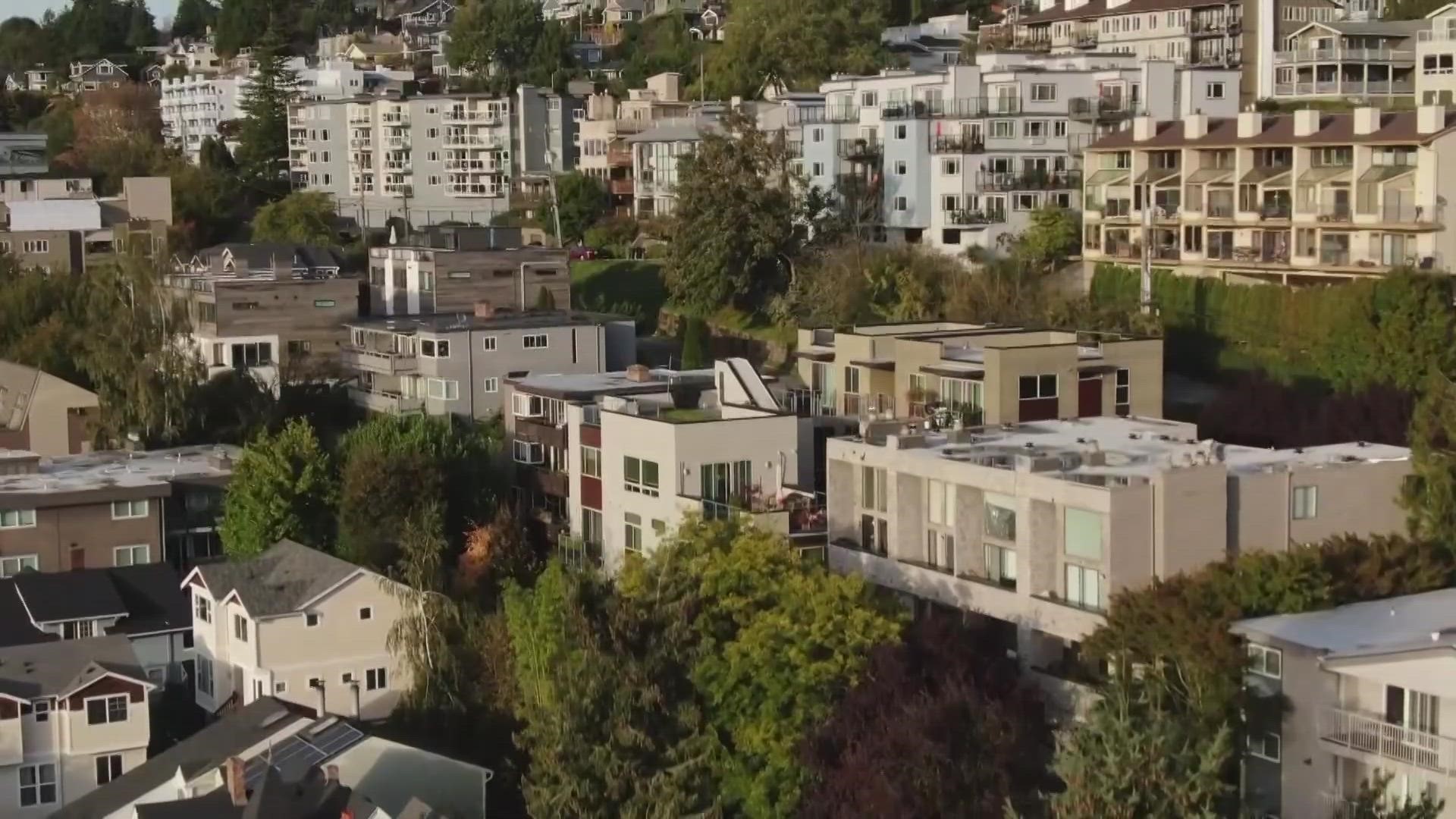SEATTLE — Votes are still being counted in the special election for I-135, which would provide social housing through the formation of a public housing developer in Seattle, but campaign organizers feel confident with current totals showing a 14-point lead.
In response to Feb. 17 totals showing 57% of voters supporting the initiative, organizers wrote in a statement that "this vote, and the margin by which it is winning, shows that Seattle is ready for something bold and new."
Suresh Chanmugam is a software engineer working in the downtown core, speaking on behalf not of his employer but of Tech 4 Housing, a group that worked alongside a coalition of organizations to pass I-135.
"They sent a very clear message, especially when you consider that the majority of people who vote in February elections are people who actually own a home," Chanmugam said. "The cost of housing has increased so dramatically that pretty much anyone who's not a software engineer, who's not a highly compensated tech worker, like me, is struggling to afford to live in Seattle."
FORMING THE DEVELOPER
If the lead holds, the next steps in the process can begin. That will include appointments to create the developer -- a board of renters, experts and representatives tasked with overseeing the purchases, construction, operations and maintenance of publicly-owned housing across Seattle.
According to text in the initiative, appointments will include seven renters at varying area median income rates as selected by the Seattle Renters' Commission; one rank-and-file union member chosen by MLK Labor, one representative from a housing provider serving historically marginalized communities selected by El Centro de la Raza, one green development professional chosen by the Green New Deal Oversight board, and three professionals selected by the Mayor and Seattle City Council to represent nonprofit development, public housing financing and urban planning.
Organizers say once appointed, the board will meet at least once a month to create committees for hiring, financing and oversight, and will hire a Chief Executive Officer and Chief Financial Officer to handle day to day management.
SECURING FUNDING
The proposed funding structure for I-135 involves securing initial grant funding and using that in a process that includes issuing bonds, residents paying rent, and use of that rent to pay off loans and buy or build more housing.
Rent rates would depend on a tenant's income, which could range from 0-120% of the area median income. Currently, the median household income in Seattle is at more than $100,000.
Rent rates would be set to equal no more than 30% of someone's income and higher-income residents would, in a sense, help to subsidize lower-income residents' rents, but some public funding is expected to be necessary to get the ball rolling. Organizers say the idea is that housing should remain publicly-owned in perpetuity, preventing costs from skyrocketing in tandem with the rest of the rental market.
PARTNERSHIPS AND FUTURE POSSIBILITIES
Chanmugam says while the social housing model would accommodate people making up to 120%, it's of interest to people making higher incomes as well.
"The basic compassion and humanity, we look around and we see so many of our neighbors struggling to survive, sometimes struggling to survive on the streets or in their cars," Chanmugam said. "We have so many friends who've been pushed out of the city, now they face very long commutes, which causes climate change, and they have less time with their families, their childcare costs are higher, our city is struggling to function."
He says it's possible that philanthropic donations could help the authority purchase or build more properties, or that other sources of funding could contribute to major changes.
"Even after we take into account the heartbreaking layoffs we saw in the tech industry, the tech industry has grown far larger than it was before the pandemic and continues to pump an enormous amount of wealth in our region," Chanmugam said. "There's no reason why we can't find a progressive revenue source to provide a dramatic level of funding for social housing, in addition to increasing funding for all the existing forms of affordable housing and resources for people who are homeless in this city."

